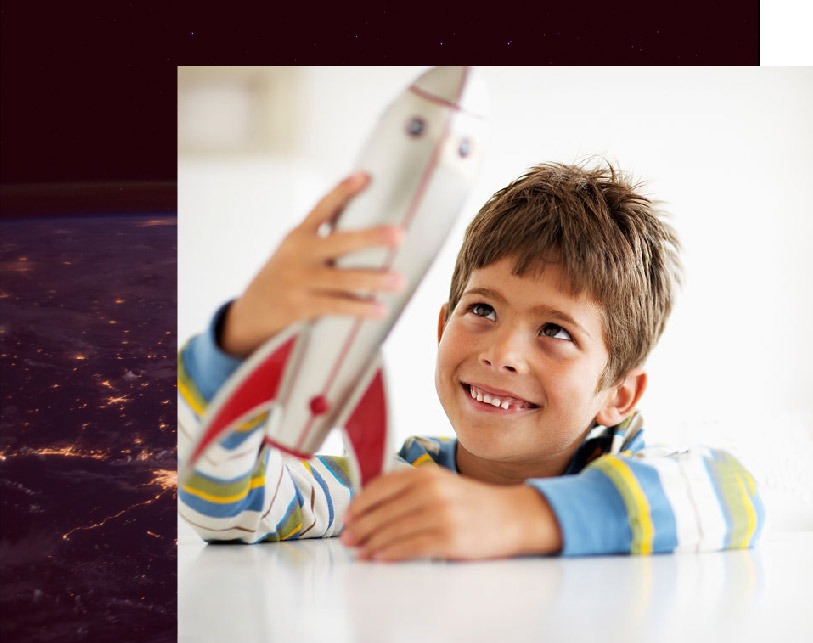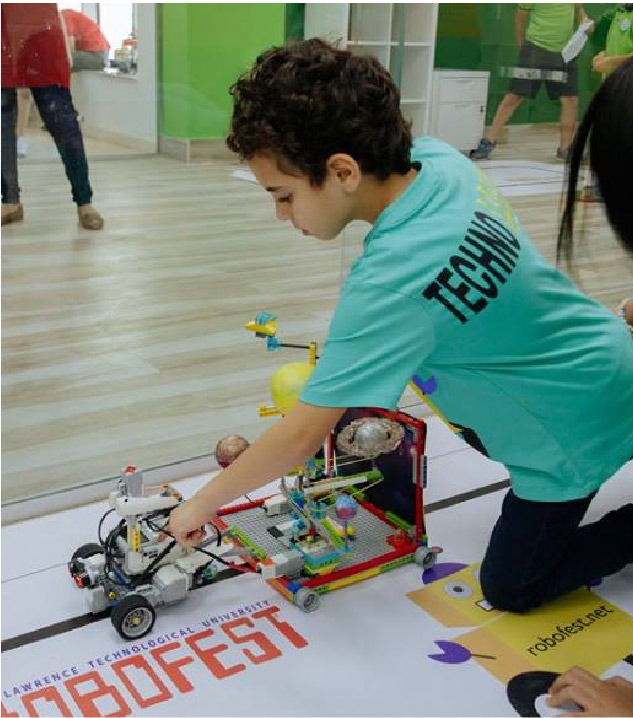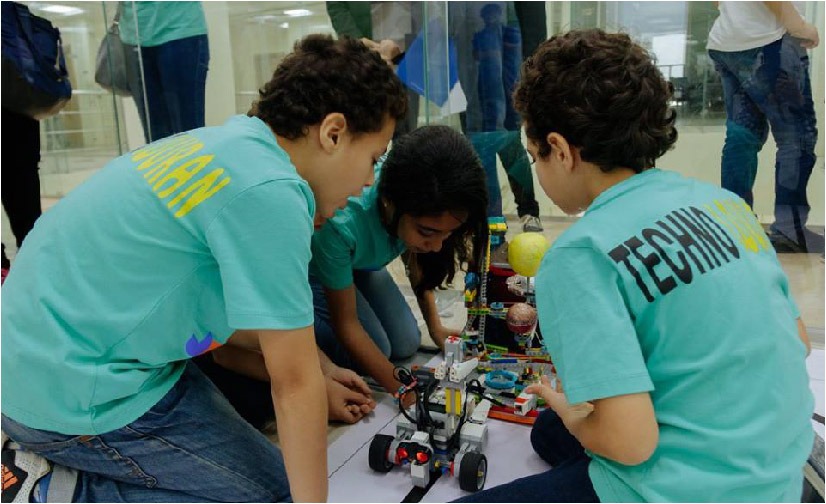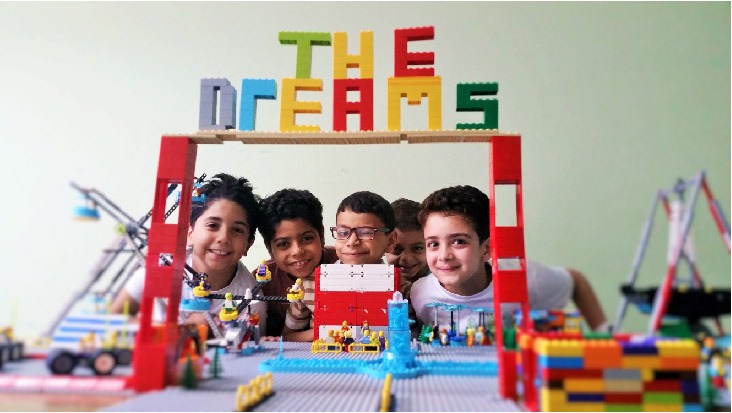K-12

Child’s experience highly influence brain development in early childhood stages.
We believe kids can learn anything from simple physics to advanced rocket science but the way to do that has to be a fun interactive way to encourage their curiosity and fuel their desire to learn
“In today’s technology-driven world, it’s important now more than ever to prepare students for the future. Teaching robotics to young students throughout their schooling can increase their ability to be creative and innovative thinkers and more productive members of society”
Robotics
Robotics brings engineering, technology, and creativity together, Robotics holds immense promise for shaping a better future. By harnessing its potential responsibly, we can create a world that is more efficient, productive, and sustainable for all.
Remember, the importance of robotics will continue to grow as technology advances and becomes more integrated into our lives. It’s an exciting field, with endless possibilities for the future.

Early simple Machine:
Kids will be provided ideal opportunities to develop an understanding of science concepts through investigation and hands-on activities.
Simple Machine:
Kids will be provided ideal opportunities to develop an understanding of the principles of the simple machines through investigation and hands-on activities.
Lego Robotics:
Kids will learn the fundamentals of Robotics and programming through different LEGO motorized robots, they will build and program different lego models which will help them understand the principles of motion and programing
Advanced Mechanics
Kid will learn about the mechanic tools, raw materials, means of transmission, Gears, Belts, and Chains. They will use simulation program to Design and construct simple movement mechanism. Know the different coordinates Horizontal motion
VEX
Students can start programming with blocks, smoothly move to textual programming, and eventually to advanced object oriented concepts using vex robots”
Arduino:
Explore the world of Microcontrollers! They will learn how to program the Arduino micro controller with C programing language
Programming
Computer programming and coding are probably the furthest things from the minds of children, but they are concepts that are becoming increasingly important. Computers are a large part of our daily lives, and their use continues to grow. Programming is an abstract concept that robotics makes understandable and approachable.

Kodu:
Kids will learn how video games are made through a 3D programing Microsoft Platform , they will :
- build their world : plant trees ,carve rivers , construct buildings and mold mountain
- Create life : populate your world with characters ,vehicles and opponent
- Program the rules : decide how players move , score points and win the game or lose
Scratch:
Kids will learn how to use scratch and will be introduced to several programing concepts that will develop their computational thinking skills and help them to use their creativity to explore the magic of technology and design and program their own simple video games
Advanced scratch:
Students will learn how to build their own video games and will learn about computing and advanced programing techniques that will help them to use the imagination and bring all their ideas to life
Mobile applications:
Students will learn programing and how to create mobile applications using App Inventor developed by MIT
Arduino:
Explore the world of Microcontrollers! They will learn how to program the Arduino micro controller with C programing language
Advanced IOT :
Kids will learn about the Networks , Internet and IOT , and how it affects our everyday life , they will build and program their own innovated project with C programming language
Arduino communication:
The project integrates advanced astronomy with electronics. Participants will learn how satellites work to transmit voice, image, data, how they are placed on Earth orbit and satellites uses in communications. Each group of students accomplishes two circuits
Python:
Learning Python can be a great way for kids to get into coding and develop valuable skills like problem-solving, creativity, and logical thinking. Python is a popular language known for its readability and beginner-friendly syntax, making it an excellent choice for young minds.
Java:
It’s versatile, It’s relatively easy to learn. Learning Java can be a great way for kids to get into the world of coding and programming. It’s a powerful language that’s used to create all sorts of things, from video games and websites to mobile apps and even big business software.
Science and engineering
Integrating math, science, and engineering concepts in everyday activities enhances cognitive, social, emotional, and physical development, and thus their overall growth. Skills and concepts that children learn while they are young will expand as they gain experience and knowledge over time.

Biology for kids :
Learn about human body parts, face features, fingerprints, breathing, the senses and food groups. Make experiments to explore about heartbeats, sound memory, smell memory, body balance and pulse.
Science Discovery:
Promote kid’s natural passion to science and scientific experiments! Learn about Nature, Physics and Air. The growth of plants, Plants sweat, air pressure, clay absorption, how does the magnifier work, mixture of colors & electrostatic energy! Learn about water, air and chemistry. Air Pressure &air flow, Surface tension, floating and sinking, facts about soap and water. Facts about Water and oil and production gases like carbon dioxide
Math Fun:
Using Lego pieces and cartoon stories, this program introduces basic math concepts to children and allow them to solve mathematical problems enthusiastically. The tool introduces and provides practice in core mathematical competencies such as reasoning, perseverance, precision, modeling, and representation through individual and team problem solving experiences.
Journey to the future :
Introduction to IOT internet of things The project takes kids on a journey to the future to learn about the technology of devices in the future and compare them with devices that we use now.
Electronics:
Kids will learn about electricity and different electronic components and how to build simple electronic circuit
Mechanics:
Kid will learn about the mechanic tools, raw materials, means of transmission, Gears, Belts, and Chains. They will use simulation program to Design and construct simple movement mechanism. Know the different coordinates Horizontal motion
Solar:
Kids will learn the difference between renewable energy and non-renewable energy and the benefits of the solar energy and how can we use it, they will design a car moving with the solar energy
Galaxy:
Kids will learn about our Galaxy, space, the day and night phenomena’s and the rotation of the earth around the sun through illustrating models and crafts
Space bricks:
Kids will go to a journey to outer space and explore the galaxies , stars and different physical phenomena’s by constructing and programing different futuristic robots which will be great introduction to physics and astronomy
ROBO Electronics:
A general introduction to electronics and electronic components and symbols. Measurement tools and how to use them. The different units of measurement using the software simulation and design of some simple circuits and their implementation in practice. Advanced Circuits and integrated circuit.
Chemistry:
In Chemistry track, students will learn the following: Chemistry equipment. Experiment with filtering and separating mixtures, combustion, and electro-chemical reactions. Learn how to work with indicators and stronger acids and bases. Explore elements and compounds, including the chemical and physical properties of water, carbon dioxide, oxygen, hydrogen, and carbon. Discover atoms and molecules. Inspect soaps and household cleaners. Experiment with various foods from the kitchen to learn about sugars, fats, and proteins. Investigate metals such as iron, copper, and aluminum. Learn about how chemistry is used in environmental protection and industry.
